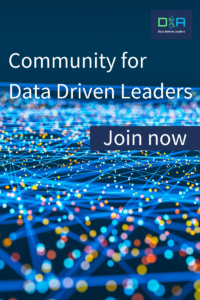Data democratization describes the unhindered data usage for the employees of an organization. This includes that employees have the necessary skills to work with data. It is a prerequisite for data-driven organizations.
Digital transformation is one of the main aspects that drive how organizations think, decide and develop today. With the tremendous volume of data, organizations must address a key challenge – how these volumes can be handled so that data is a value-adding asset for the company.
Problems that employees often encounter when handling data are the lack of access to it, the quality of accessible data and the lack of skills to handle the information. Data democratization is supposed to tackle these challenges. It describes a conceptual change in the access to data and the data usage within an organization. Gartner named it already in 2020 one of the most important technology trends for the upcoming years.
Data Democratization: Foundation to Work with Data
The term “democratization” is legitimate in the context of data democratization, since the access to data is supposed to be rolled out across the whole organization to enforce equality and freedom of the employees in terms of data usage. There is the reasonable idea that organizations work better and generate added value when data can be used across all levels. Organizations that operate with fully centralized governance models might have to rethink their approach if they want to base more decisions habitually on data. If they want to leverage insights from their data, they need to promote transparency and exchange.
Data literacy plays a key role in enabling data democratization; without [1], data democratization cannot be implemented. We believe that organizations must invest in data literacy that:
- promotes a data mindset at various levels, irrespective of the employees’ background and prior know-how, their roles and responsibilities,
- allows to backup decisions with facts and data evidence,
- enables confident communication and easy consent to complex situations and dilemmas.
These key elements enable digital transformation towards a future-proof organization that focuses on development and growth, not only economically but in the sense of becoming a stronger community of well-educated employees.
Architectural, Infrastructural and Governmental Aspects of Data Democratization
To implement data democratization and finally to build a data democracy, many companies need to rethink traditional architecture, infrastructure and governance.
Reshaping of IT landscape
The IT landscape has to be reshaped to end time-consuming searches for information or requests for data that is based in a centralized data ownership with the IT department. Instead, the goal is a decentralized infrastructure with a federated governance for domain-driven data ownerships. As a result, data no longer needs to be requested and searched for in disconnected areas of the organization or applied for centrally.
Data virtualization
Regarding technology, the integration of data from various domains will be a challenge and one can name data virtualization here as a data integration concept to connect data and enable access in a rather decentralized data architecture and infrastructure. The virtualization layer consisting of meta data “lies” on top of the IT architecture and it realizes the effortless access to real time data from a number of data sources. It allows an application to retrieve and manipulate data without requiring technical details of the data.
Altogether, it is crucial that the organization invests in tools and technologies that keep the autonomy of the data domains in focus. This will support the individuals’ autonomy, meaning that they will have the necessary tools in hand to access the data they need.
Data governance
Besides IT landscape reshaping and technology, an organization will need a strong data governance concept. Here, data governance means the holistic management of data. Aspects are data quality and data security, both notoriously complex to manage, and absolutely essential. Although data democratization is favorable, it must be executed in a governed and safe way e.g., through clear guidelines for handling sensitive data, roles and authorizations, data ownership concepts, etc.
Workforce enablement
To reach broad and easy data usage, training all employees and providing them with the right tools to realize so-called self-service analytics or explorative analytics is a must. These tool sets include visualization tools such as PowerBI, Tableau, Qlik, etc. and data marketplaces such as Snowflake. Data democratization allows trained business users to access relevant data without advanced technical skills, without effort, and without time delay. In the best case, with all tools in hand, they will gain a more holistic understanding of the data ecosystem which will help the understanding of information assets and context of the available data. They will also contribute to a significant increase in the efficiency of data use. Instead of having dedicated experts for business analysis, who are often disconnected from the actual organizational domain, the employees can discover the information autonomously.
Data Democratization: Enabling a Competitive, Data-Driven Business Model
Data democratization must be on top of organizations’ agendas to build a competitive, data-driven business model. Enabling efficient and educated data usage requires a strong focus on data literacy, availability and the training of people. To implement those data democratization measures, a mindset shift is needed to leverage data as the crucial asset that it is.
[1] According to Gartner, data literacy is the ability to read, write and communicate data in context, including an understanding of data sources and constructs, analytical methods and techniques applied, and the ability to describe the use case, application and resulting value. See this blog article on data literacy for details.

